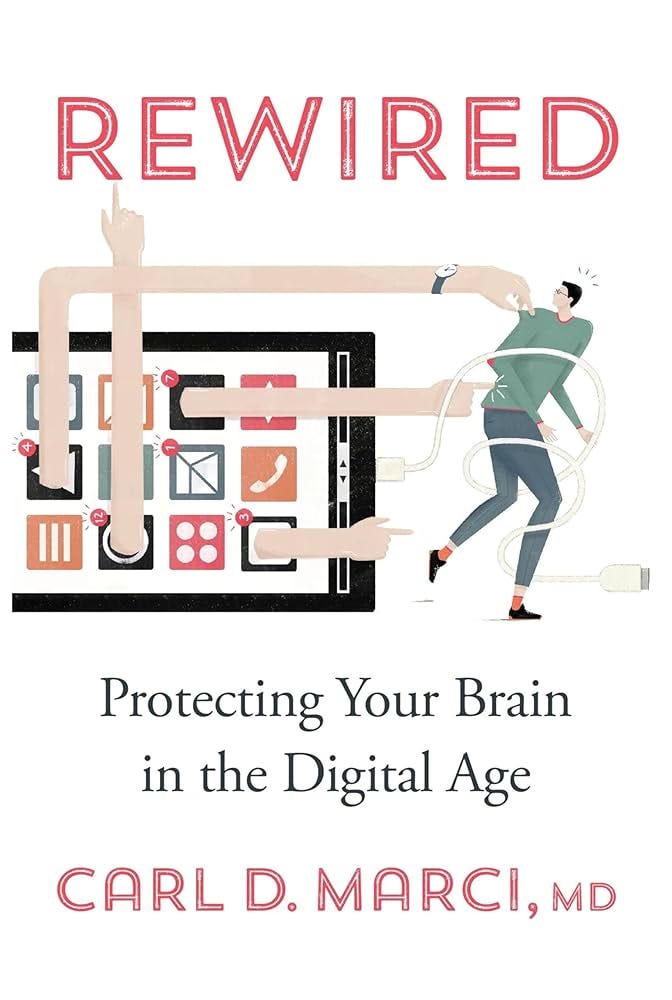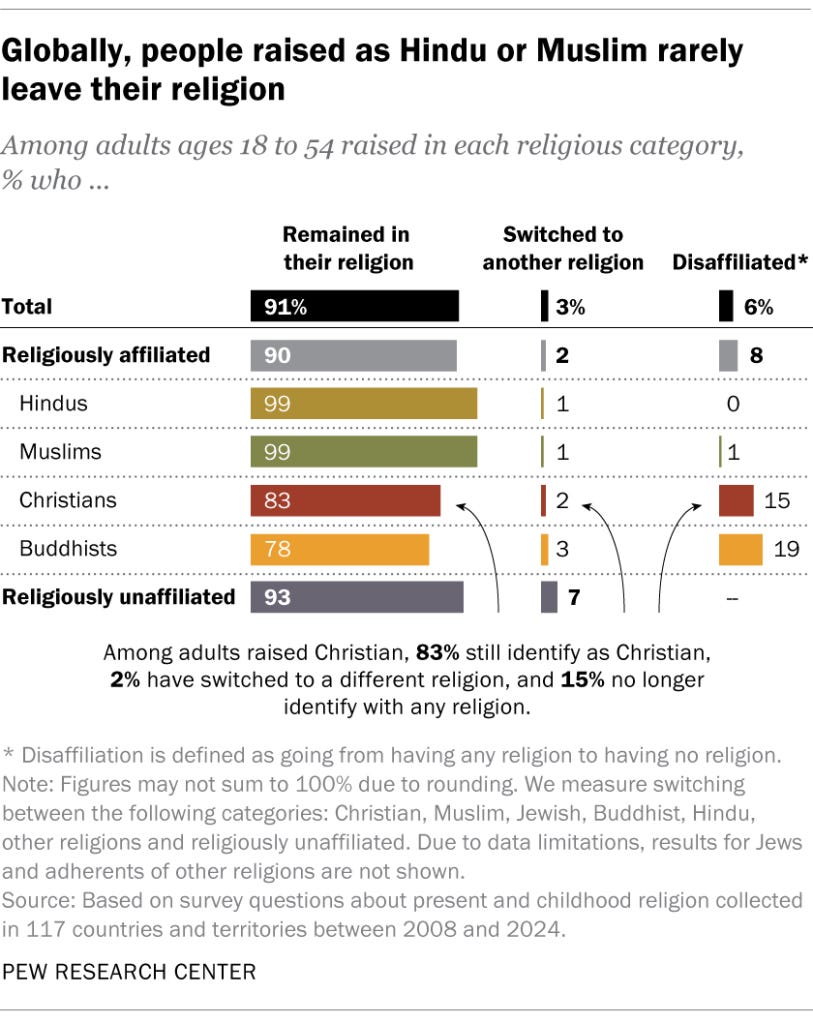This week…
Your reading time is about 5 minutes. Let’s start.
I’m in the final week of the semester. I have that big end-of-module assignment due in a few days. I wrote almost 5,000 words on it, and cut it down to 2,300, and it will get a couple hundred more words from proper in-text citations to meet the 2,500 word count. This assignment has been consuming my mind for weeks. I probably won’t share it on The Extra Mile like I did with some of my other essays because of the format of the assignment (POSTNote-style policy brief for the UK government) but it’s probably Trump’s worst nightmare: DEI in outerspace. And because it’s international law, it’s really a miserable subject to have on one’s mind because looking at the state of the world, is international law even a thing? Bsfr.
Your Wikipedia this week: Tetris effect
And now, a selection of top stories on my radar, a few personal recommendations, and the chart of the week.
ICYMI: The Previous Block was about Reuters Institute’s Digital News Report, press freedom, and AI slop. (Timeloop, remember?)
CORRECTION NOTICE: None notified. DATA PRIVACY
Denmark to tackle deepfakes by giving people copyright to their own features
Miranda Bryant for The Guardian:
The Danish government is to clamp down on the creation and dissemination of AI-generated deepfakes by changing copyright law to ensure that everybody has the right to their own body, facial features and voice.
The Danish government said on Thursday it would strengthen protection against digital imitations of people’s identities with what it believes to be the first law of its kind in Europe.
Having secured broad cross-party agreement, the department of culture plans to submit a proposal to amend the current law for consultation before the summer recess and then submit the amendment in the autumn.
It defines a deepfake as a very realistic digital representation of a person, including their appearance and voice.
The Danish culture minister, Jakob Engel-Schmidt, said he hoped the bill before parliament would send an “unequivocal message” that everybody had the right to the way they looked and sounded.
He told the Guardian: “In the bill we agree and are sending an unequivocal message that everybody has the right to their own body, their own voice and their own facial features, which is apparently not how the current law is protecting people against generative AI.”
He added: “Human beings can be run through the digital copy machine and be misused for all sorts of purposes and I’m not willing to accept that.”
Loosely linked:
Europeans seek digital sovereignty as US tech firms embrace Trump by Thomas Escritt for Reuters.
How Internet of Things devices affect your privacy – even when they’re not yours by David Sella-Villa (University of South Carolina) for The Conversation.
Mattel and OpenAI have partnered up – here’s why parents should be concerned about AI in toys by Andrew McStay (Bangor University) for The Conversation.
Malaysia’s metadata controversy: Surveillance in the guise of statistics by Nuurrianti Jalli for Fulcrum.
16 billion password data breach hits Apple, Google, Facebook and more – Live updates and how to stay safe by Darragh Murphy for Tom’s Guide.
Who is most at risk from the billions of leaked Facebook and Google passwords? by Damilare Dosunmu for Rest of World.
THE PRESS
CapCut’s policy update raises major red flags for newsrooms
Erika Marzano for Journalism.co.uk:
CapCut — the Chinese, ByteDance-owned video editing app behind countless viral TikToks and Instagram Reels — has become a newsroom staple for fast, mobile-first storytelling.
However, its newly updated terms of service, rolled out quietly on 12 June 2025, should prompt urgent scrutiny from any journalist or editor relying on the platform to produce vertical video.
Under these new terms, users grant CapCut and its partners a global, perpetual, irrevocable, royalty-free license to use any content uploaded to the app. That includes the right to reproduce, distribute, modify, and sublicense the material, without notifying the user or offering compensation. Even more concerning, CapCut considers all uploaded content to be non-confidential.
This has serious implications for journalists. It means editorial footage, branded content, exclusive interviews, or even sensitive raw material could be repurposed, recontextualised, or monetised by a third party without the journalist’s knowledge or consent. Even more concerning, the terms allow CapCut and its partners to use a journalist’s username, face, or voice to publicly identify them as the source of a video, including in sponsored content or advertising. For journalists working in sensitive environments or reporting under their real names, this creates significant risks around visibility and misuse.
Loosely linked:
A secret program allowed VOA to broadcast television into North Korea. Now it’s gone by Joel Simon for CJR.
Self-regulation has proven a failure: Brazilian leaders defend the need for social media regulation by Maria Ramirez Uribe for Poynter.
Journalists combat information vacuums on Venezuela’s border by bringing news to the streets by César López Linares for LJR.
Kenya Gen Z protests see press freedom under fire by David Ehl for DW.
Other curious links, including en español et français

LONG READ | Online hacks to offline heists: crypto leaders on edge amid increasing attacks by Niamh Rowe for The Guardian.
PHOTO ESSAY | Turning plastic into fuel: Photos of Gaza’s youth surviving with makeshift burners by Abdel Kareem Hana for AP.
El ciberataque a ministros, políticos y periodistas pretende promover su acoso: “Es un escarmiento” por Carlos del Castillo en elDiario.es.
Una llamada, una orden directa de tu jefe y la apariencia de una urgencia: así es la “estafa del buen empleado” de la que alerta la policía por Edu Molia en elDiario.es.
Mirar sin ver: violencia, silencio y desensibilización en el ‘soma’ digital por Miguel Alexandre Barreiro Laredo en Retina.
C’est exactement ce qu’ils cherchaient : des créateurs de contenus sur TikTok regrettent la mise en avant d’influenceurs controversés dans les auditions de la commission d’enquête par Margaux Queffélec dans Franceinfo.
Voici ce qui se cache derrière les vidéos d’animaux à l’accent québécois par Nicholas De Rosa dans Radio-Canada.
Bienvenue en post-réalité ! par Kati Bremme dans Méta-Media.
What I read, listen, and watch
I’m reading Rewired: Protecting Your Brain in the Digital Age (2022) by Carl D. Marci. Maybe a bit too late for me, huh..
I’m listening to an Iranian and an Israeli on the recent war on New Lines Magazine’s The Lede.
I’m watching how the internet warps our emotions by DW.
Chart of the week
Globally, 1 in 10 adults under 55 have left their childhood religion, according to Yunping Tong at Pew Research Center.




